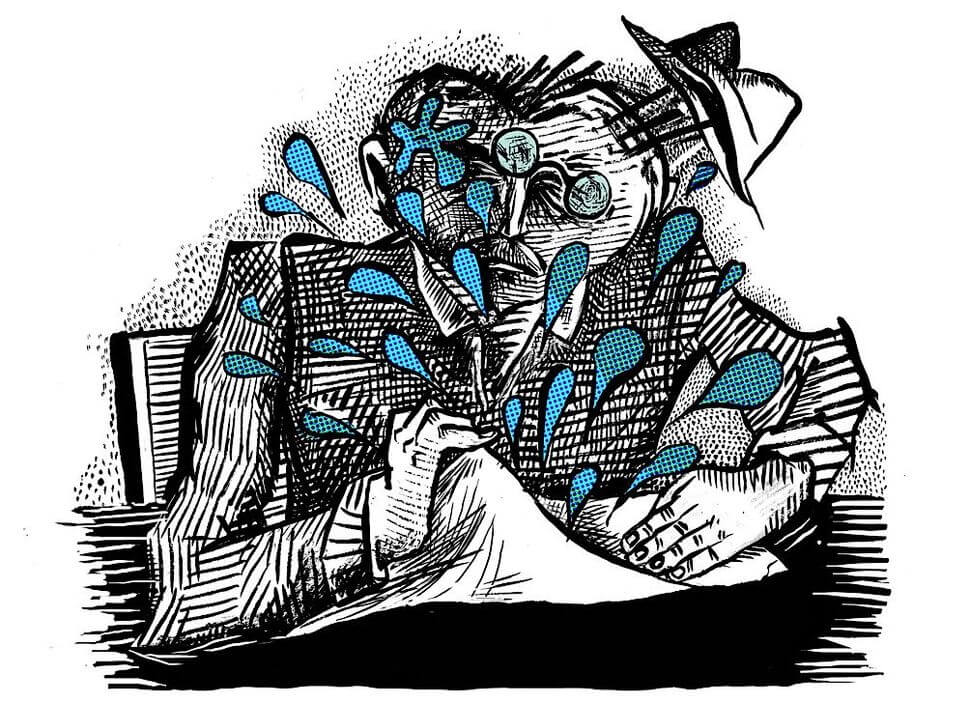Freedom From Facts
The Glenn Beck “Restoring Honor” rally is over, and both Abraham Lincoln, whom Beck sought to take hostage, and Martin Luther King Jr., whom Beck sought to emulate, remain intact.
We will get to Beck in a moment. But let us get Sarah Palin, who was a featured speaker at the rally, out of the way first. You may recall that nonviolence was at the heart of King’s belief system; indeed, it is doubtful that the civil rights movement would have transformed America as it did without its commitment to nonviolence. Evidently, Palin is unaware of that, for the focus of her remarks at the rally was that the way for activists to honor the King legacy is by paying tribute to the men and women who protect the United States in uniform.
There is a kind of perverse splendor to Palin’s ignorance. She is an entirely free woman, untethered to the world of facts. That may actually account for the great enthusiasm with which some Americans respond to her; she is a truly liberated woman, and her liberation is infectious. She gives people permission to be factless, to live in a world of conclusions that are without foundation. Such conclusions are no more than slogans, which spares people the burden of gathering information and putting it to use.
Of course we may and should honor the troops. And of course we may and should honor King’s memory. But the intimate connection between the two that Palin urges upon us is odd, to say the least. The rally slogan was “Restoring America’s honor,” and seeking to transform Martin Luther King into a celebrant of the military is a silly distortion, not honorable at all.
This being the season of forgiveness, a word in Palin’s defense: To be factless is also to be clueless, and there is no reason to believe that Palin is aware of the irony involved in her juxtaposition of honoring King and paying tribute to our uniformed forces.
Now Beck: Very many of us live in enclaves, spending most of our time with people of similar tastes, dispositions, beliefs and convictions. So, for example, I’ve done some fact-checking, and I’ve learned that of the 20 or so people I count as good friends, all have heard of Glenn Beck, but not a single one has ever watched him except via clips on Jon Stewart’s or MSNBC’s programs. They know enough to be aware of some of his more outrageous statements and views, but they miss the details of his quackery. (My personal favorite is his reference to the conflict between Israel and the Arabs as “5,000 years old,” which works out to roughly 1,800 years before the time of Moses.)
Context: To the active displeasure of some of his colleagues, Martin Luther King — the Beck rally took place on the 47th anniversary of King’s “I Have A Dream” speech — was devoted not just to the cause of civil rights as it was conventionally understood, but also to issues of poverty and of war, specifically, the war in Vietnam. But Tea Party activists — and both Palin and Beck are among the most outspoken endorsers of the Tea Party movement — are opposed to virtually all government programs that try to deal with the issue of poverty. No minimum wage, no safety net, even, lately, the repeal of Social Security.
Now comes Beck, the man who several months ago pronounced that “social justice” is a code term for communism and Nazism, and claims the King mantle: “We are the people of the civil rights movement. We are the ones that must stand for civil and equal rights, justice, equal justice. Not special justice, not social justice. We are the inheritors and protectors of the civil rights movement. They are perverting it.”
So here we have this mountebank with a rally at the Lincoln Memorial attended (according to CBS) by 87,000 people and a speech that was blissfully short on politics and painfully long on God. Beck’s central theme in his long and essentially meaningless speech, a pastiche of exhortations and contradictions, was that Americans face a defining choice: We can advance, or we can perish. As between the two, he prefers that we advance. What does that word mean to him? It means we must search inside ourselves and find God. And then: “We must insist that our churches stand for things we know to be true.” If they don’t, if the pastors and rabbis and priests and imams insist on preaching social justice, we are to find another church, synagogue or mosque.
I do not know what Glenn Beck “knows to be true,” although I have my suspicions. So, for example, Beck is the one who about a year ago said that President Obama is a “racist,” a man with “a deep-seated hatred for white people.” When asked about that just after the rally, he replied that “I have a big fat mouth sometimes and I say things, and that’s not the way people should behave,” which sounds appropriately contrite — but then he added that he now understands what he hadn’t understood when he made his inflammatory comment. Specifically, he didn’t understand (and now does) that Obama’s thinking derives from liberation theology, which holds, according to Beck, that salvation for the individual depends on salvation for the collective through economic and social justice. And then, “That is a direct opposite of what the Gospel is talking about. It’s Marxism disguised as religion.”
It is hard to know what to think about Beck. He may be a megalomaniacal con artist who sees himself as a 21st-century version of the Founding Fathers — he has variously drawn parallels between himself and Moses, King, George Washington and even God — or an utterly sincere, albeit utterly addled, true believer.
It is less hard to know what to think about those for whom Beck is a heroic figure. They are among America’s horde of the intellectually dispossessed. They lack all sense of irony, fail to see the tension between Beck’s assertion that there is growing hatred in our country, that we must therefore love one another and defend those with whom we disagree so long as they have honor and integrity, and his trashing of the political echelon as lacking all honor and integrity — i.e., by implication, not entitled to our love, deserving of our hate.
For the record, there is another Washington rally scheduled for October 2. It is sponsored by a broad coalition of civil rights, religious and labor groups, more than 150 of them, called “One Nation,” which says it “is about reordering our nation’s priorities to invest in our most valuable resource — our people.” It seeks “to transcend our superficial differences and bring us together in a common quest for equal opportunity and justice for all.”
I am not at all persuaded that our differences are, in fact, “superficial.” They strike me as quite profound. But the One Nation people are very savvy, and they may be closer to the truth than I. A better effort at explaining to people where their interests lie and how they may best be defended may uncover a unity that now seems quite distant.
What appeals to me about the One Nation rally is that there seems to be more content to its discontent than there is in the inchoate disgruntlement that the Beck rally sought to mobilize — and much, much more clarity in its prescription. There’s an election coming very soon, and much at stake, and much to warrant protest, and an urgent need to move from the kind of protest Beck and Palin called forth to a protest with a nuts-and-bolts agenda — secure jobs, safe homes, quality education. Now there is a dream worth dreaming — and worth rallying ’round.















